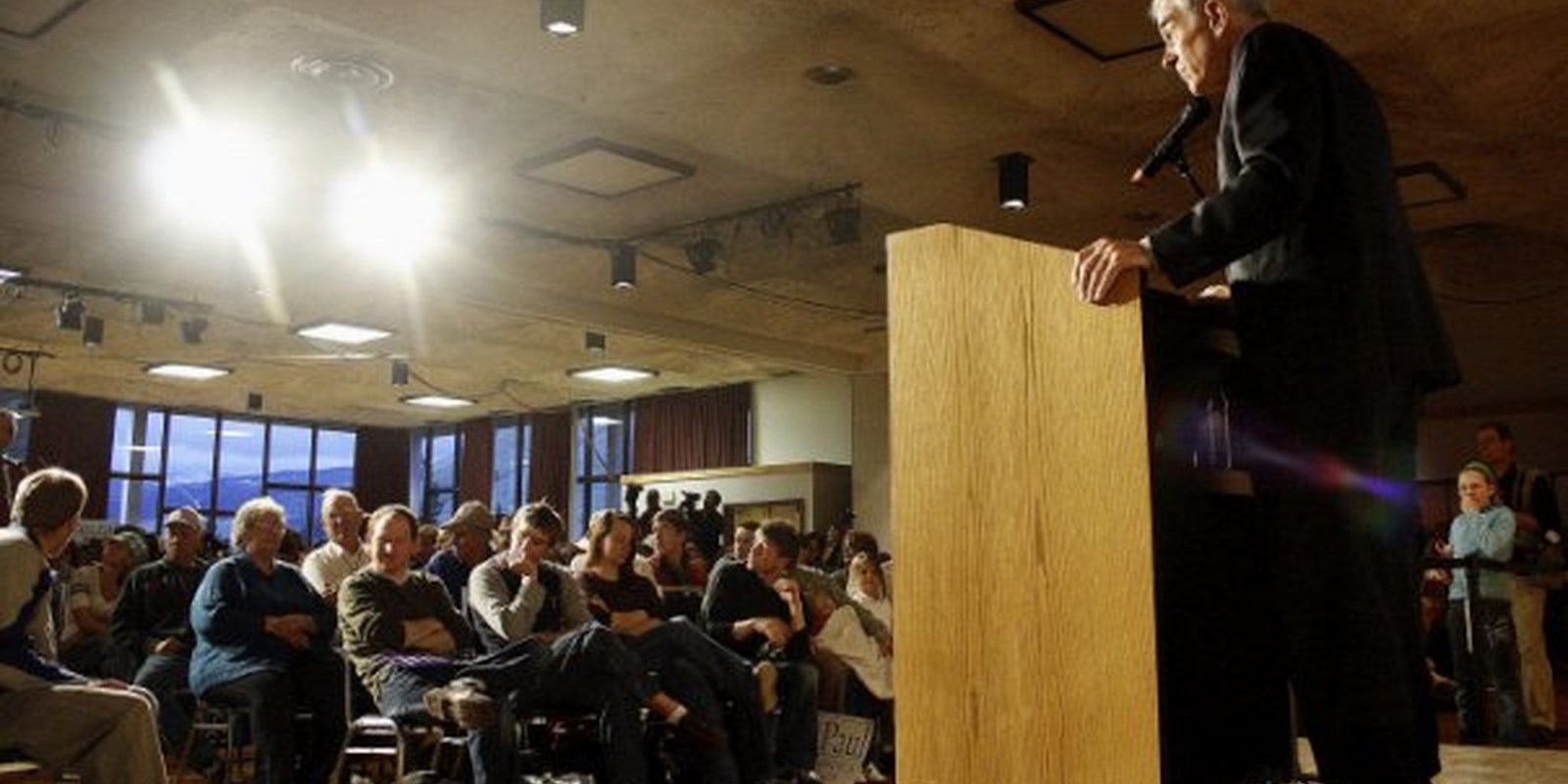The presidential race may be over for Texas Congressman Ron Paul, but the legacy he built on social media remains.
Earlier this week, Paul announced that he was done actively campaigning for the Republican presidential primary (although technically he didn’t end his campaign). And even though he never actually won a contest and consistently lagged in the polls, you would never know that looking at Paul’s social-media standings.
According to Fan Page List, Paul is the seventh most popular politician on Facebook–in the world. No other legislator can top him and only presidents, governors, and a Queen can claim more fans. He even beats former President Bill Clinton, considered by some to be one of the most popular politicians in America.
The numbers are indeed staggering when you actually consider Paul’s job–a congressman representing Texas’s 14th District, an area that includes Houston suburbs and Galveston. He has more than 960,000 likes on Facebook, 293,000 followers on Twitter, and 188,000 have him in their Google+ circles.
Why does Paul have such a commanding presence on social media? One word: demographics.
Paul’s Libertarian message appears to attract a younger, possibly more idealistic audience, just the type of people who are more likely to be on social media. According to Paul’s Facebook page, the average age group of his fans is between 25-35 years old–not bad for someone born before World War II.
The only other American politicians that can claim younger groups are Barack Obama and Arnold Schwarzenegger. What about Mitt Romney, Paul’s Republican competitor up until this week? His most popular age group is 45-54 years old.
Yet just as much of Paul’s social media success has to do with how his campaign carried itself online. Paul was often ready to jump at his competition, including Mitt Romney, Rick Santorum, and Newt Gingrich.
He also was behind some well-produced ads that didn’t pull any punches about what he planned to do in the unlikely chance he moved on to 1600 Pennsylvania Ave.
His uncut attitude also appeared on Twitter occasionally, specifically in a tweet aimed at Jon Huntsman this winter, which poked fun at his poor showing in Iowa. “@jonhuntsman we found your one Iowa voter, he’s in Linn precinct 5 you might want to call him and say thanks,” the campaign wrote, before taking the message down about 30 minutes later.
But where does this social media legacy go, especially considering that Paul has decided not to run for reelection? (That essentially makes the 2012 presidential primary his political curtain call.) If anyone were to benefit from Paul’s movement it’s his son, Sen. Rand Paul, who many believe is considering a 2016 White House run.
The social media power house his father built will no doubt help in that effort.
Photo by Justin Franz


